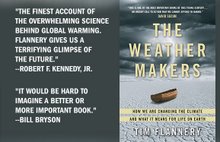FROM a Great Canadian and World Statesman
"A great gulf... has... opened between man's material advance and his social and moral progress, a gulf in which he may one day be lost if it is not closed or narrowed..."
Lester B Pearson
http://nobelprize.org/nobel_prizes/peace/laureates/1957/pearson-lecture.html
Monday 8 December 2008
PacificSci ~~~~~~~~~~~~~~~~~~~~~~~~~ FIFTH ANNIVERSARY OF A BUSINESS VENTURE WITH A SOCIAL PURPOSE
PREAMBLE: Fourth Sector Enterprises
Pacific Health & Development Sciences Inc. (PacificSci), a health systems consulting firm based in Canada, falls within a new class of organization known as “fourth sector” or “for benefit” enterprises. Such entities represent a new paradigm in organizational design, aiming to link two concepts which are held as a false dichotomy in other models: private interest and public benefit.[1]
Before telling the short story of PacificSci, we muse in this preamble on the emergence of “fourth sector” organizations. To place this in the contemporary context, consider the following observations regarding the conflicts confronting traditional organizations[2]:
• Private companies have always had to balance between achieving the largest possible profits for their shareholders and retaining trust and contact with their other stakeholders: the local community, consumers, sub-contractors, pressure groups, etc.
• The public sector for years now has faced enormous political pressure in favour of privatization of a wide range of functions - and then being forced to 'repurchase' the very same functions and institutions when private companies no longer find them profitable.
• Voluntary organizations: Due to fierce competition from other voluntary organizations and tight state financing, voluntary organizations are having to experiment with their independent income - the sale of services and new products. All of which - activities and financial priorities - can be at odds with the organization's main goals and mission.
As far as the private sector is concerned, one only has to look at the world financial crisis to recognize that some firms are simply too big to be allowed to fail, despite incompetent leadership e.g, even now the US is bailing out its once mighty banking industry. Clearly, western industrialized nations are capitalist when going up, and socialist going down!
Equally, it has become increasingly clear that neither public nor voluntary sector organizations really operate in the “pure” manner traditionally implied. Increasingly public enterprises compete with the private sector, while the voluntary sector has become more commercially oriented.
For example, the success of many voluntary not-for-profit organizations today is due to a fully funded core staff, supplemented by contract income, thus able to build handsome “working capital funds”, while remaining eligible for government grants, which conveys a competitive advantage over other types of organization. In effect, such non-governmental organizations or NGOs (once mostly charitable organizations) have actually become a good “business model”!
In the meantime, many public sector (government) entities have become so hollowed out that they simply must hire private contractors to deliver the expertise that actually belongs with their public mandate. In addition to consulting firms, much of that expertise (sometimes hidden) is obtained from universities, themselves having become “hybrid” organizations[3]. Even publicly funded universities now engage in industry partnerships while receiving government financing, and simultaneously contracting out services to government! For those wishing a more academic analysis, we refer to Claude Menard.[4]
In this increasingly complex scenario, for which the neat rules separating the traditional organizational forms seem increasingly less applicable if not actually quite murky, the emergence of fourth sector organizations is perhaps virtually inevitable: breaking with earlier conceptions of the relationship between the state, the private sector and the voluntary sector. Operating outside the world of grants, and inside the basic economic realities of surviving as a business, the bottom line is nonetheless one of social purpose: in many ways a modern renaissance of motivation to improve the human condition.
With this backdrop we now offer the short story of PacificSci as a fourth sector organization.
References:
1. FourthSector.net http://www.fourthsector.net/for-benefit-organizations.php Accessed Dec 5, 2008.
2. KaosPilot International - International School of New Business Design and Social Innovation. http://users.homebase.dk/~awi/Publications/fourth_sector.pdf Accessed Dec 5, 2008.
3. Lamb R. Hybrid Organization. University of Hawaii, Manoa. June 17, 2004. http://www.vfh.fh-brandenburg.de/vfh/gastvorlesungen/gastvortrag_05.pdf Accessed Dec 5, 2008.
4. Menard C. The Economics of Hybrid Organizations. Presidential address to the annual conference of the International Society for New Institutional Economics, MIT, September
27–29, 2002. Journal of Institutional and Theoretical Economics. JITE 160 (2004), 345–376 2004 Mohr Siebeck – ISSN 0932-4569
http://atom.univ-paris1.fr/documents/Menard_JITE_2004.pdf Accessed Dec 5, 2008.
Feature Story - FIFTH ANNIVERSARY OF PacificSci
Pacific Health & Development Sciences Inc. (PacificSci), was incorporated precisely five years ago, on December 8th, 2003, as a health systems consulting firm. Our mission is “seeking solutions to health and social impacts of economic development”.
PacificSci is a joint venture of principals Franklin White (FW) and Debra Nanan (DN), President and Vice-President respectively. It was conceived primarily as a vehicle for our continued involvement in the field of public health, within which we had accumulated some 50 years professional experience. FW having worked outside Canada for the previous 15 years, and DN also experienced in both developed and developing countries and now a new resident of Canada, it was clear that –having been out of sight and out of mind for so long – one way to sustain our involvement in mid-career at appropriate levels of philosophy and responsibility would be to set up a private entity with its own mission.
The act of incorporation was carried out without professional legal assistance, using a simple “how to” guide. Within the first year, we became listed on various public sector registries in Canada, and launched our first website using freeware. In 2006, "PacificSci" was approved as our registered trademark. We upgraded our website in 2007 using the basic package from SiteCube.com, again without assistance[1]. See http://www.pacificsci.org/
Since incorporation, PacificSci has engaged in a blend of contractual and pro bono activities, mostly with an international focus, and with an expanding domestic portfolio. Without attempting to be comprehensive, the following is a selection from our portfolio.
Revenue Generating Activities
As a fourth sector organization, contractual work has been our primary source of corporate income. In this we have had reasonable success in attracting both international and domestic assignments, all of which reflect our social mission. In carrying out this mission, we commit to the same level of rigour and professionalism as we previously applied to our former careers in both academia and government service.
International Contracts
Foremost in this category has been Health Project Monitoring in Pakistan: In 2004 PacificSci participated with Universalia Management Group to bid for this Canadian International Development Agency (CIDA) role. A 5-year contract was awarded in 2005. Since then we have conducted M&E tasks in relation to four CIDA-supported initiatives:
- Family Planning Association of Pakistan (FPAP)
- HIV/AIDS Surveillance Project (HASP)
- Systems-Oriented Health Investment Programme (SOHIP)
- Lady Health Workers Programme (LHWP)
We are currently engaged in continued monitoring of both SOHIP and the LHWP. In addition, at CIDA’s request in 2006, FW carried out a review of a World Bank evaluation on a primary health care initiative in Pakistan, duly acknowledged by the bank.
We were also contracted by Sweden’s International Development Cooperation Agency (SIDA) to represent them in a joint donor evaluation of the African Medical & Research Foundation (AMREF). From October 2005 this entailed site visits to headquarters and field operations in Kenya, Uganda and Tanzania; the assignment was completed in March 2006.
NOTE: Links to each of these projects are supplied on our website: http://www.pacificsci.org/
Domestic Contracts
Domestic contract have also been a significant source of revenue, compatible with our mission. Over our first 5 years, PacificSci has engaged in several contracts, the most significant of which have been:
. Royal Roads University, Centre for Health Leadership & Research (CHLR): In April 2008 DN, PacificSci, contracted to support CHLR research; concluded Sept 2008. In July 2007, both principals delivered a review of process evaluation for population health initiatives. In Sept 2006, White co-developed with Dickson of CHLR a concept paper to support the ActNow-BC initiative, Ministry of Tourism, Sports & the Arts.
. EDS Canada: From December 2005 to February 2006, PacificSci was retained for our technical expertise to assist EDS in developing disease surveillance and management solutions, in response to an RFP to develop a Pan Canadian system. While EDS did not win this competition, out of 10 bidders it ranked second in a final run-off with IBM Canada, and ruled eligible if IBM did not complete the initial contracting requirements.
. British Columbia Ministry of Health: in 2004 PacificSci developed (complete draft) the Provincial Health Officer's (PHO) 2003 report. "Every Breath You Take..." This cites ~200 references and presents original analyses of air quality and morbidity data, including the first analysis of health services impact of 2003 forest fires. It was presented by PHO Dr Perry Kendall to the BC Legislature.
NOTE: Links to each of these initiatives are supplied on our website: http://www.pacificsci.org/
Pro Bono and Academically-Associated Activities
PacificSci’s voluntary activities have included many hundreds of hours in mentoring individuals and groups abroad and in Canada, participating in e-communities and in health policy groups, and reviewing for scientific journals.
We have also engaged in communications work. In 2006 the firm launched this monthly blog (PacificSci Global Perspectives) to present an independent view on current affairs, emphasizing the social determinants of health and social well-being. We were also a Communications Partner for the World Urban Forum (WUF) 2006, Vancouver.
On January 10, 2006, we launched PacificSci GLOBAL HEALTH DATA LINKS [2], a free subsidiary website developed primarily for students of international and global health providing annotated links to the following sources:
. UNDP Human Development Statistical Reports
. WHO Statistical Information Systems
. US Census Bureau International Database
. Population Reference Bureau Data-Finder
. WHO's Global Health Atlas.
Academically, PacificSci has been active in various (mostly honorary and voluntary) roles with: the Aga Khan University (Community Health Sciences), Dalhousie University (Community Health & Epidemiology), Kuwait University (College of Medicine), Royal Roads University (Centre for Health Leadership and Research), and others. The roles have included serving as: thesis supervisor; research advisor; external examiner; visiting speaker; curriculum design advisor; co-grantee; and co-author. In addition, Franklin White serves on an Advisory Board at the University of Victoria, Faculty of Human and Social Development, and Debra Nanan recently held a research post under a PacificSci contract with RRU. In May 2008, Franklin White was an invited by the University of Wisconsin to help launch the Survey of the Health of Wisconsin (SHOW), supported by the Wisconsin Partnership Fund for a Healthy Future.
Since incorporation, PacificSci principals have reviewed various scientific and professional articles for the following leading international journals:
. Anthropology & Medicine
. Archives Medical Sciences
. Canadian Medical Association Journal
. Evidence-based Complementary and Alternative Medicine
. Globalization & Health
. Medical Science Monitor
. International Journal Quality Health Care
. Journal of Public Health
. Qualitative Health Research
Since incorporation, as an expression of ongoing commitment to the population health sciences, PacificSci principals (in addition to numerous contracted technical reports) have themselves authored or co-authored 19 articles in peer-reviewed journals, 2 book contributions, 4 conference abstracts and 1 on-line video. Franklin White served as an Associate Editor and Debra Nanan as a contributor in: Dictionary of Public Health. JM Last (ed) Oxford University Press 2007. [Oxford Reference Online Series.] We also completed a major book chapter: White F, Nanan D. International and Global Health. Chap 76. In: Maxcy-Rosenau-Last, Public Health & Preventive Medicine. 15th Ed. McGraw Hill 2008. Full citations are available on a free website PacificSci NEWS & REPORTS [3], where we maintain a cumulative public record of our work. Unlike the contributions of most of our university and government colleagues, these contributions are of a pro bono nature. We see this as essential in staying in touch with and maintaining leadership in our field, while growing PacificSci as a fourth sector organization.
NOTE: Links to many items noted above are on our website: http://www.pacificsci.org/
Discussion
The most significant discovery in growing our enterprise, is that, despite working outside the formal system, we are able to make a unique and valued contribution to the public good, perhaps even “above our weight”. While less personally remunerative than working in either the public sector or in a university, this is offset by more “intellectual freedom” than most full time academics, and more control over professional time than persons working in a health service. Our third party independence, especially in monitoring and evaluation roles, and in our greater opportunity to “think outside the box”, frees us to speak out and write on issues as we see them, and make pro bono contributions out of choice, according to our best judgment. A significant disadvantage however is that, not being part of collective agreements that provide for professional networking and development, we must either dip into our own pockets or be invited as a resource e.g., conferences. This is the price to be paid for a different way of working: the fourth sector approach – in striving towards our social mission, we must also deliver on our skills, or go out of business. As we enter our sixth year, so far this has not happened.
Envoi: This has been a brief and candid account of the experience of Pacific Health & Development Sciences Inc., during its first 5 years or operation. During this period, PacificSci has managed to deliver reasonably well on its mission while being a “business venture with a social purpose”. Our “fourth sector” model has facilitated flexibility in what we, as principals, choose to do professionally. We can recommend this form of organization for anyone who wishes professional freedom of choice, within a strong social mission, and with the discipline to ride through lean inter-contract periods.
References
1. Pacific Health & Development Sciences Inc. MAIN WEBSITE http://www.pacificsci.org/
2. PacificSci GLOBAL HEALTH DATA LINKS http://www.webspawner.com/users/globalhealthdata/index.html
3. PacificSci NEWS & REPORTS http://www.webspawner.com/users/pacificsci/index.html
Subscribe to:
Posts (Atom)
INSPIRATIONAL WELCOME ............................... from T.S.Eliot's "Little Gidding"
If you came this way From the place you would come from... It would be the same at the end of the journey...
If you came, not knowing what you came for, It would be the same... And what you thought you came for Is only a shell, a husk of meaning... From which the purpose breaks only when it is fulfilled If at all.




















